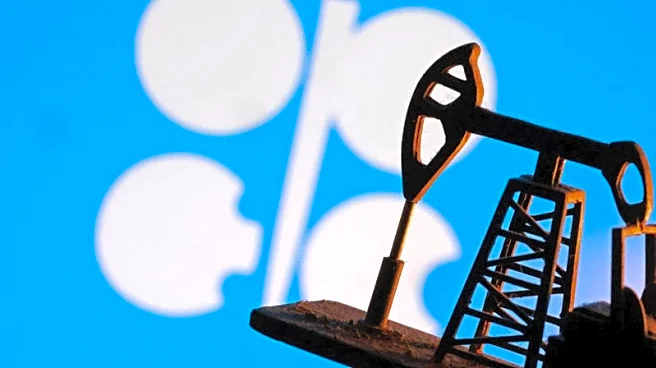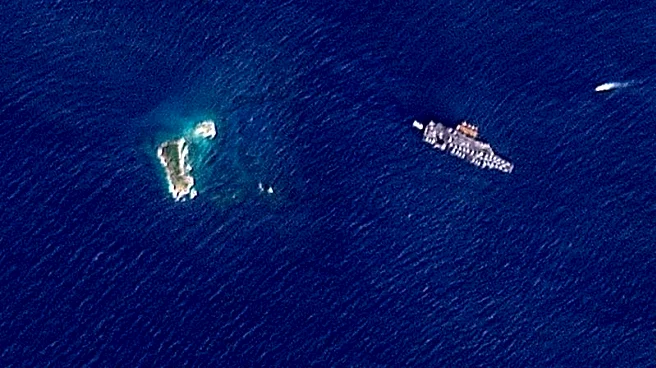What's Happening?
The Trump administration has decided to withhold approval for several Western oil companies seeking to operate in Venezuela. This move is seen as an effort to increase pressure on Nicolás Maduro's government. While Chevron Corp. has been granted permission to resume operations in Venezuela, companies such as Spain's Repsol SA, Italy's Eni SpA, and France's Maurel & Prom are left in uncertainty. This decision highlights the complex geopolitical and financial considerations at play in Washington. The U.S. Treasury Department had previously allowed Chevron to produce and export Venezuelan oil, indicating a selective approach to foreign involvement in the Venezuelan oil sector.
Why It's Important?
This decision by the Trump administration could have significant implications for international oil markets and U.S. foreign policy. By restricting non-U.S. companies, the administration is likely aiming to maintain leverage over the Maduro government while also managing domestic energy prices. The move could benefit U.S. companies like Chevron, potentially increasing their market share in Venezuela. However, it may also strain relations with European allies whose companies are affected. The broader impact on global oil supply and prices could be substantial, influencing energy markets and economic conditions worldwide.
What's Next?
The future of this policy will depend on ongoing geopolitical developments and the administration's strategic priorities. Potential reactions from affected companies and European governments could lead to diplomatic negotiations or adjustments in policy. The situation remains fluid, with the possibility of further sanctions or approvals depending on the Maduro government's actions and international diplomatic efforts.












